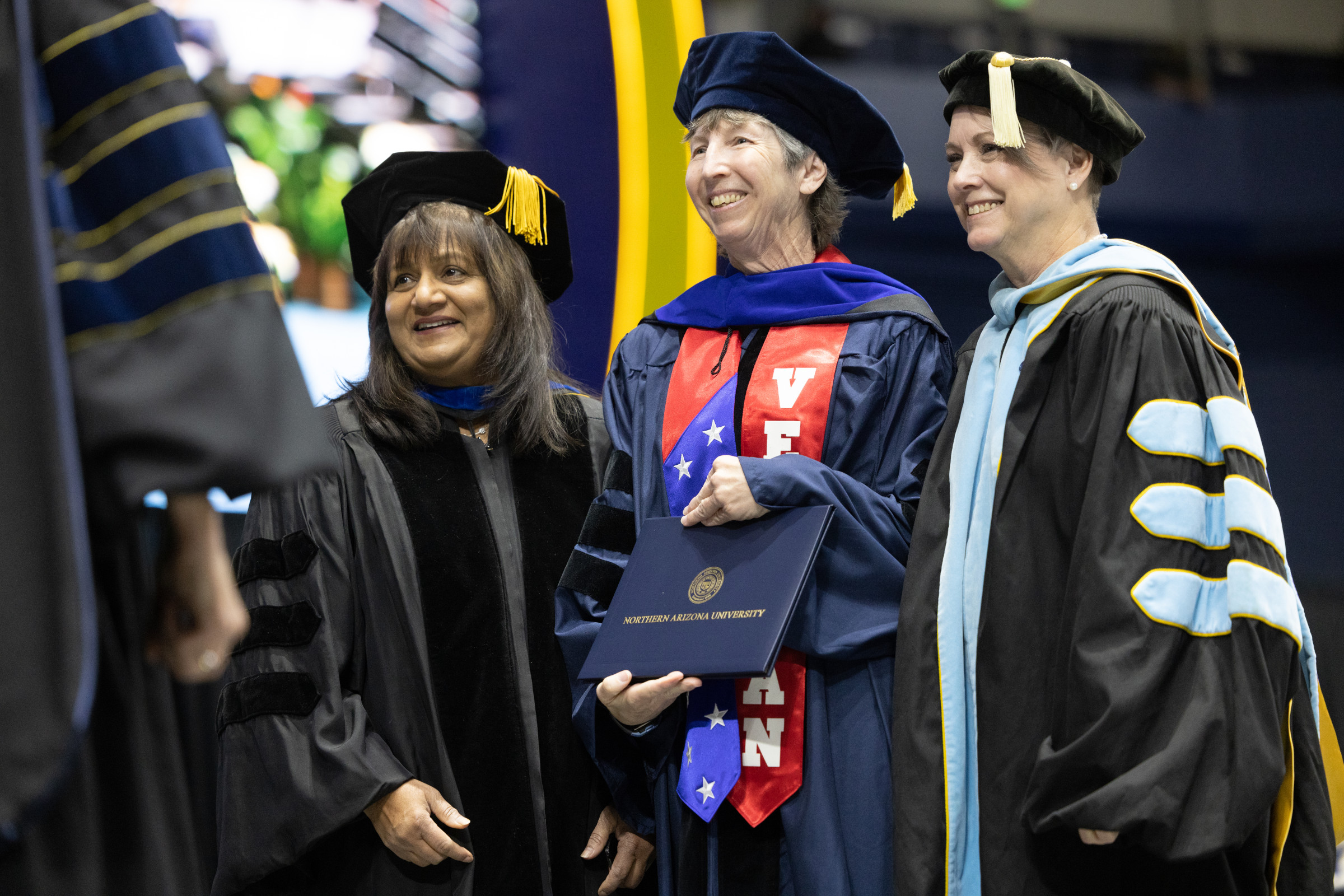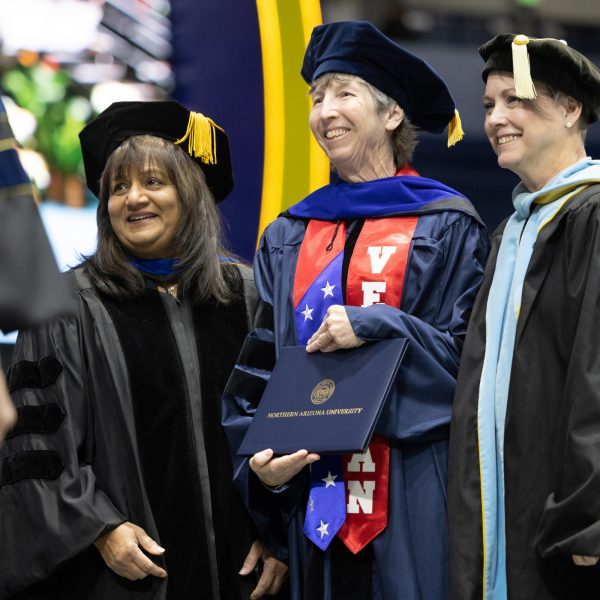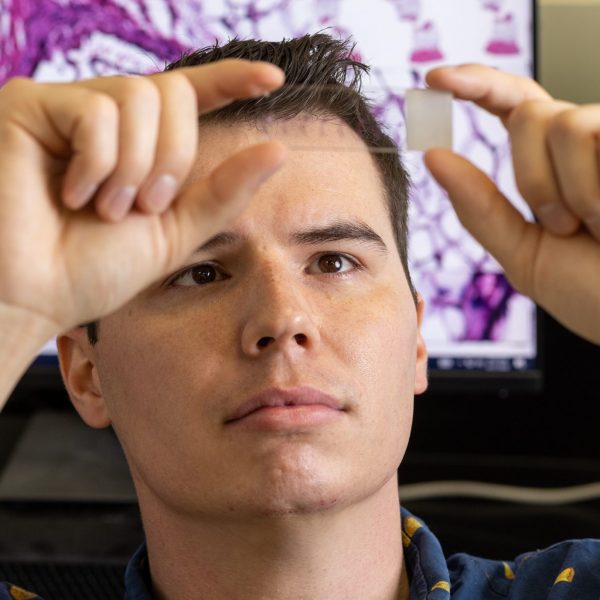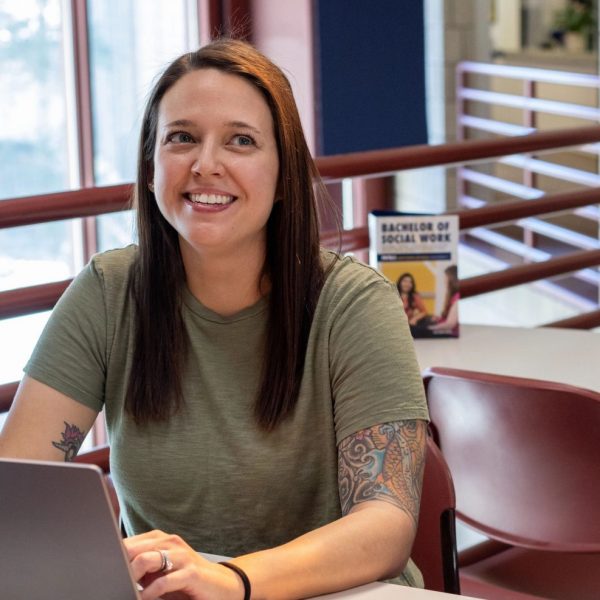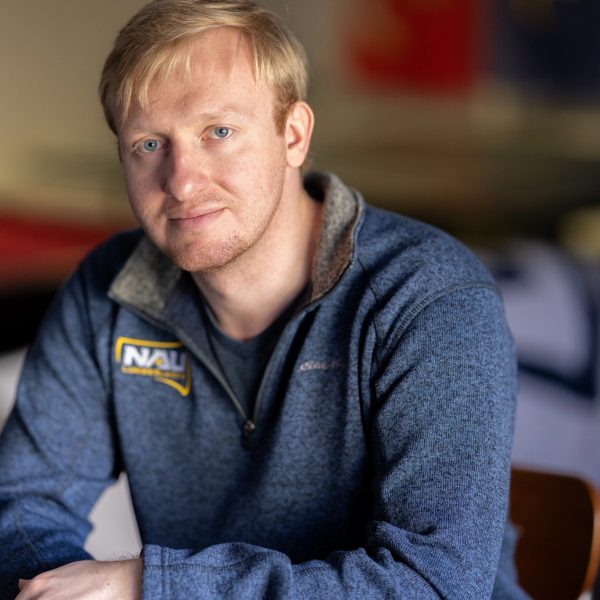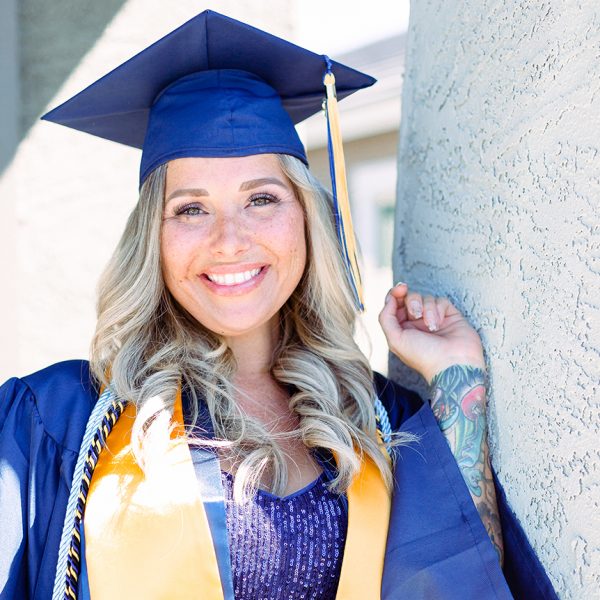NAU alum Rebecca Seeger provides a brilliant masterclass in combining lifelong learning with a determination to do good in her state.
As a retired Air Force veteran of 30 years, an NAU alum with numerous undergrad and graduate degrees under her belt—three of which come from NAU—and an active member in several organizations across northern Arizona, Rebecca Seeger is a force in her community.
Seeger recently graduated with a PhD in Curriculum and Instruction, where she focused on college education programs for incarcerated people. However, her relationship with NAU began 47 years ago when she moved to Arizona as an undergraduate, and has only evolved with time.
An active NAU alumna
“NAU was always home to me; I came here from Florida after graduating from high school. My dad drove me out here and dropped me off,” Seeger recalls. “It felt like, ‘oh, now what?’ But I met some of the greatest people—I’m actually meeting with some of my old roommates next month for lunch. Now, though, I can serve and support the university in new ways. My relationship hasn’t changed. It’s just grown.”
Today, Seeger is a vital part of the NAU alumni community and has established two endowments for NAU soccer and women’s basketball, in addition to having volunteered for the NAU Athletics mentoring program and other on-campus programs.
While completing her PhD, Seeger served on the Graduate Student Government (GSG) for over two years and was its president during academic year 2021–22 and the fall 2022 term. “The GSG provided an opportunity to meet with other students, serve on some of the president’s advisory boards and other committees, and be able to say, ‘Here’s what I think we need to best represent the students,’” she reflects. “I think with leadership it’s really about responsibility and trying to make things better than when you got there. And that’s all I’m trying to do.”
Education in incarceration: a life-changing opportunity
With her PhD dissertation, “College-in-Prison Access, Financial Aid, and Importance: What Do Arizonans Think?,” Seeger stayed true to her creed, proposing new opportunities for incarcerated people in Arizona. “There are no degree-granting face-to-face college programs in Arizona,” Seeger says. “My PhD proposed creating a program with NAU degrees for incarcerated people; it’s something that is sorely lacking here in the state.”
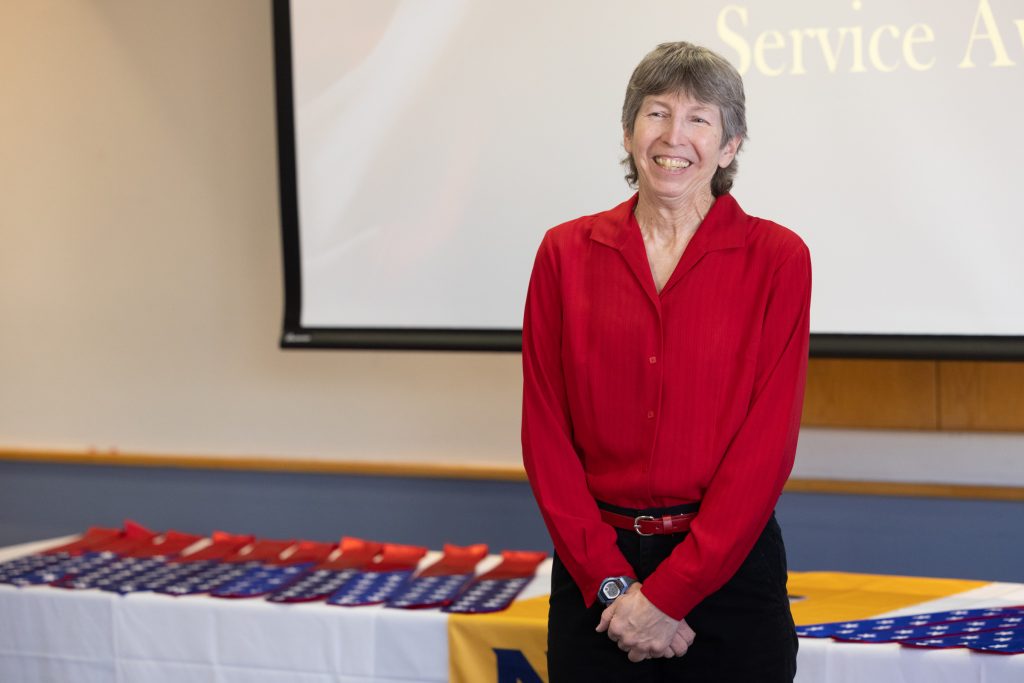
Seeger notes that education can make a life-changing difference for incarcerated people both during and after their sentences. “Getting a degree changes your trajectory. So much so, that you go from about 80% of incarcerated people to recidivate within 10 years down to 4%. If we really want to improve our justice system, we have to help people who are incarcerated.”
Recidivism describes the tendency to reoffend after release from incarceration, a phenomenon that is often spurred by the difficulty of finding gainful employment or educational opportunities. “This is the most marginalized group in the country, and if I can make a difference in their lives, then I’m going to do it,” Seeger continues. “Too many people think, ‘I can’t do this, I’m not smart enough.’ This program is going to show that yes you can, you are smart enough. Also, with a degree you have better odds of getting hired with a living wage, rather than either not getting hired because you have a felony conviction, or only being hired into very poor paying jobs.”
Currently the program is in its early stages, and Seeger is creating a business plan while awaiting fellowship funding and preparing for the program’s pilot year. “We won’t start with a lot—only 20 students—but there are 10 state prisons in Arizona, so at the end you’re talking 800 students a year,” she says. “Hopefully within five years we’ll have it in every state prison, and if possible, go into the private prisons as well, because they have even fewer educational opportunities than the state prisons do.”
A veteran helping veterans
In addition to her involvement at NAU and work with the state’s incarcerated population, Seeger is an active part of the veteran community in northern Arizona, serving as the president of the Grand Canyon chapter of the Military Officers Association of America. “We know we’re making a difference, and that’s important. We work with a lot of formerly homeless veterans, do scholarships for ROTC, and support veterans going to school at both CCC and NAU,” she says. “Another thing we do for our chapter is put together a food bag and a first aid kit for homeless veterans. So, I know we’re making a difference in veterans’ lives.”
Seeger discusses the role of this small but impactful community across the state. “Veterans, we’re a very small community, especially up here in northern Arizona. Despite that, we have one of the largest memberships for a public health service because they’re also a part of the Military Officers Association. We’re proud of that because they work a lot on the reservations, and we know that we are helping in those respects as well,” she says. “The people in our association have never stopped serving. We all take that to heart. I’m going to continue to serve not just the veteran communities but also NAU, because my undergraduate degree—my first one—gave me a lot. I just had such a wonderful time, and now I have a chance to give back.”
Following her successful PhD completion, Seeger’s journey from NAU undergraduate to distinguished veteran and community leader is far from over. “You know, too many people say, ‘I can’t fix it all, so I’m not going to try,’” Seeger says. “Well, I know I can’t fix it all, but I can fix one tiny little aspect of our world, and that’s what I’m going to do. That’s what I’m focused on for incarcerated students, and who knows—when I’m done with that, I may go do something else. For me, I’m still growing, even though I’m old. I’m still learning and still trying to figure things out, and I think that’s what makes a life worth living: not to be satisfied if you see something wrong. Figure out how you can fix it.”

